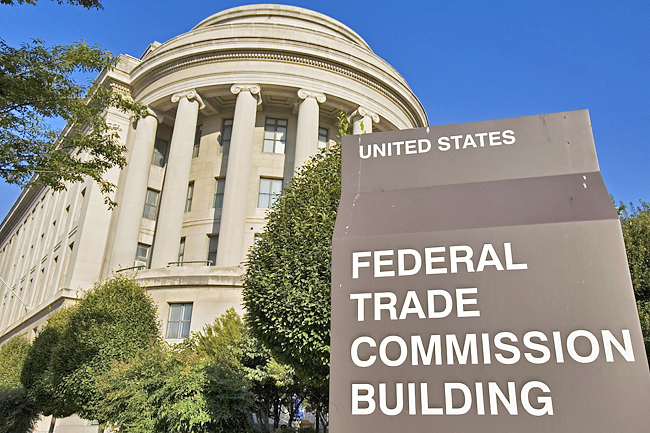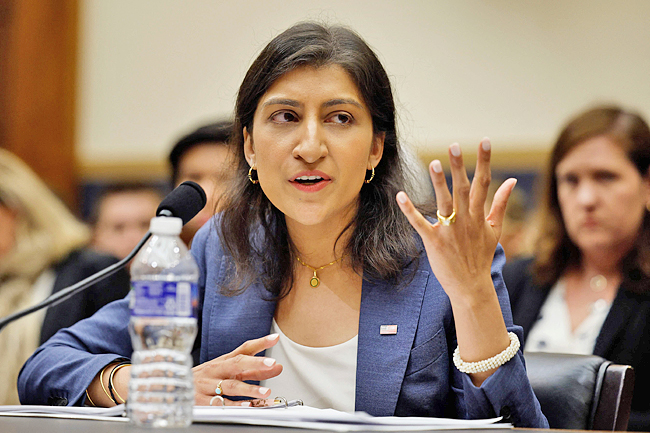WASHINGTON (AFP) – Federal Trade Commission (FTC) chairman Lina Khan is on a mission to embolden United States (US) competition enforcers, but a series of court defeats has sowed doubt that she will put an end to decades of Washington’s light-touch approach to antitrust regulation.
The Biden administration official was handed her latest loss when a federal court last Tuesday threw out her agency’s objection to Microsoft’s USD69 billion buyout of video game giant Activision, calling the FTC’s arguments short of compelling.
Khan’s Federal Trade Commission had suffered an earlier defeat in the same San Francisco courtroom, when a judge said the FTC’s opposition to Facebook-owner Meta buying Within, a virtual reality software company, was out of bounds.
“We fight hard when we believe there was a law violation, and unfortunately things don’t always go our way,” Khan said during a heated question-and-answer hearing in US Congress on Thursday.
US President Joe Biden in 2021 plucked Khan from the hallways of US academia to lead the agency in charge of safeguarding the interest of consumers and preserving a level playing field for businesses.
“They are out on the frontier of antitrust,” said John Lopatka from Penn State’s School of Law on Khan’s fresh approach to enforcing competition policy.

PHOTO: AFP
“It’s just that the courts are not that receptive,” he added.
Khan is just 34 years old and made a name for herself in antitrust circles when she published a paper as a Yale Law student in 2017 that argued that competition laws were no longer fit for purpose in the age of Big Tech.
The paper, titled Amazon’s Antitrust Paradox, said that the current policy was ill-equipped to deal with the rise of online platforms, which had a unique ability to snuff out competition across a wide range of businesses.
Her celebrated paper was a retort to a seminal work by conservative scholar Robert Bork that said enforcers of fair competition should leave mergers alone unless a clear risk of higher prices and a threat to consumers could be proven.
Written in the 1970s, that philosophy guided the government’s attitudes on gauging big mergers for decades and influenced the judges deciding the biggest cases today.
US competition policy is ultimately decided by the courts and any change of philosophy would require a changing of the guard to shift mindsets, which can take a generation.
“Courts are naturally conservative institutions, they don’t change overnight,” said professor of law at Boston University Keith Hylton.
This is in contrast to Europe, China and South Korea where antitrust litigation is almost exclusively handled by a civil service and government agencies. And in Europe, the European Union’s 27 member countries have agreed on a landmark law that hands Bit Tech a major list of dos and don’ts that severely limits their ability to snatch up potential rivals through mergers or buyouts without prior consent.
Treading lightly against business is the position of many Republicans in Congress where Khan was grilled for several hours about her willingness to open cases that challenge big business, even when they have a slim chance of success.
“Are you losing on purpose?” asked California congressman Kevin Kiley.
Representative Darrell Issa called her a “bully” for preventing the Microsoft and Activision Blizzard deal and said the FTC would “beat on anyone that has a trillion-dollar market cap”.
Khan fended off the criticism and said she was determined to keep taking cracks at mergers that she believed were an affront to fair competition and throttling innovation.
FTC law “mentions ‘unfair methods of competition’: That’s the standard we’re enforcing”, she told lawmakers.



















































